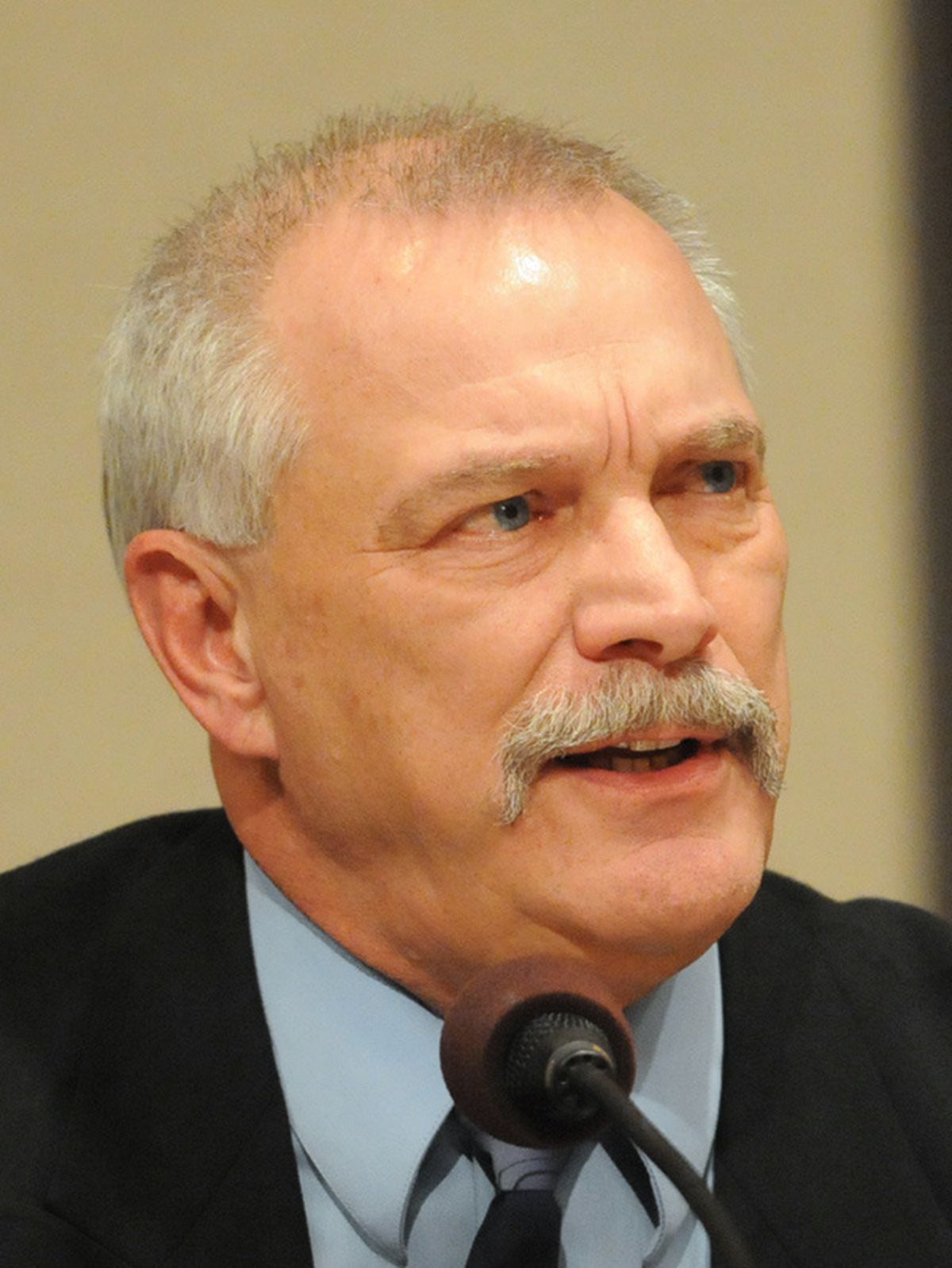Prosecutor rankles judge
No-show to explain slashed charges in plea deal puts shooting case on ice

A judge refused this week to honor a plea agreement brokered by Spokane County Prosecutor Steve Tucker after Tucker brushed off her demand to appear in court and explain his actions.
Earlier this month, Spokane County District Court Judge Debra Hayes put off the deal – which would have reduced seven felony charges from a shooting incident to two misdemeanors – and ordered Tucker to attend a hearing on Tuesday; Tucker was a no-show.
“He indicated that it was his position that the court did not have the authority to compel his attendance on a case like this so he was declining to come,” Deputy Prosecutor Steve Garvin said.
The incident prompted Hayes to refuse to accept the guilty plea of Lucas J. Merrill, 28, who faced seven counts of first-degree assault after he fired several shots into an occupied home in fall 2009 during a dispute over a dog. According to the family who lived there, bullets missed by inches two toddlers who were sleeping in the front room.
“This is about as close to a murder case as I’ve seen as a felony reduction,” Hayes said during a hearing on Nov. 14. “You can probably tell I’m not all that excited about it.”
Garvin told Hayes at the hearing that Tucker personally negotiated the agreement to drop all felonies and have Merrill – who served two tours of duty in Iraq – plead guilty to two counts of misdemeanor reckless endangerment so that his case could be handled through the county’s Veterans Court.
“I recognize it’s an extraordinary settlement,” Garvin said, according to court transcripts obtained by The Spokesman-Review. “But, uh, Mr. Tucker has approved it and so I’m going to recommend it to the court.”
Although Tucker brokered the deal for Merrill, he did not attend the Nov. 14 plea hearing. Hayes, afraid that such a plea may put a federal grant that funds Veterans Court in jeopardy, rescheduled the hearing until she could hear directly from Tucker.
“I’m also going to compel Mr. Tucker to be at that hearing so we can get the information from him, because I think that’s very important because he is the one who negotiated the plea,” Hayes said in court.
When Tucker didn’t show up Tuesday, Hayes told Garvin she “wanted Mr. Tucker to come to this … because he brokered the plea agreement according to what you represented in court.”
“Is Mr. Tucker in the office today?” she asked.
Garvin indicated that Tucker was at work but that he wouldn’t appear.
Hayes responded, according to the transcript: “So he declined to come to court on a case where he actually did the plea negotiations and he ordered you to come up and cover for him?”
“That’s correct, your honor,” Garvin said.
Tucker did not return an email and messages left on his office phone and cellphone seeking comment.
Hayes declined to answer questions about the exchange. She sent the case back to Superior Court, where it remains in limbo pending a January trial date, Garvin said.
The case began in fall 2009, although the exact date is different in court records and the testimony last week. Garvin said the case started because Merrill and his roommate, Brock Woodson, believed that the neighboring Gertlar family had either poisoned or injured their dog.
“That confrontation led Mr. Merrill to become upset at the Gertlars. And, he got very drunk and that festered in his mind to the point where he took his gun and shot their house. There were seven people inside the residence,” Garvin said. “Very fortunately, nobody was injured.”
Hayes asked Garvin whether the Gertlars approved Tucker’s proposed plea deal.
“I’d be dishonest to say they were enthusiastic about it,” Garvin said, “but they did say they could live with it.”
The judge read a letter submitted by Karen Gertlar who said the shooting “has affected our lifestyle and ability to live a safe and normal life.”
“By someone’s careless act, we are constantly in fear and all of us have re-occurring nightmares,” Gertlar wrote.
At the time of the shooting, Gertlar’s daughter was in the home with her young girls, who were 3 and 2 the time. The children were sleeping in the living room and the “bullets missed the grandkids by inches. They will not sit on the couch and are terrified to be in the living room,” Gertlar wrote. “We feel, as a family, that (Merrill) should be charged accordingly.”
Defense attorney Tom Krzyminski said that his client, originally from Colville, served eight years in the military and has been diagnosed with post-traumatic stress disorder and bipolar disorder and has suffered traumatic brain injury.
“I was not the original attorney,” Krzyminski said at the Nov. 14 hearing. “I will tell you that I was a little surprised by the reduction (in charges) when I read the file. But then after meeting Mr. Merill and spending some time with him, I can understand how they got to that point.”
Hayes asked Garvin what Tucker was thinking when he originally approved the plea agreement.
“I was not present at the meeting,” Garvin said. “I think that (Tucker) was swayed, and I’m reading into this as best I can, I think he was swayed by Mr. Merrill’s … good service in the military, the diagnosis, which is PTSD and a secondary diagnosis.
“I think (Tucker) felt that Mr. Merrill would be well served by the rehabilitative options of Veterans Court.”
Garvin said he thought the plea would allow Merrill to continue his military service. “And, I think Mr. Tucker also felt that was something worth trying to preserve. Again, I can only speak for him as best I can without being present at those discussions.”
Tucker, who makes about $145,000 a year, is a former Washington State Patrol trooper.